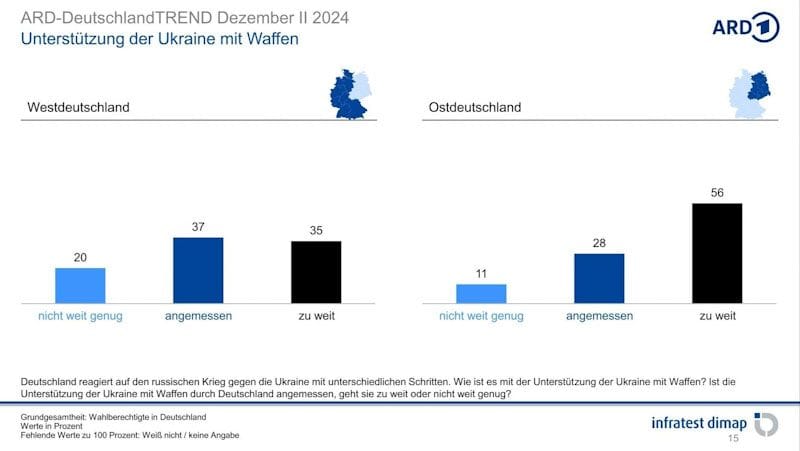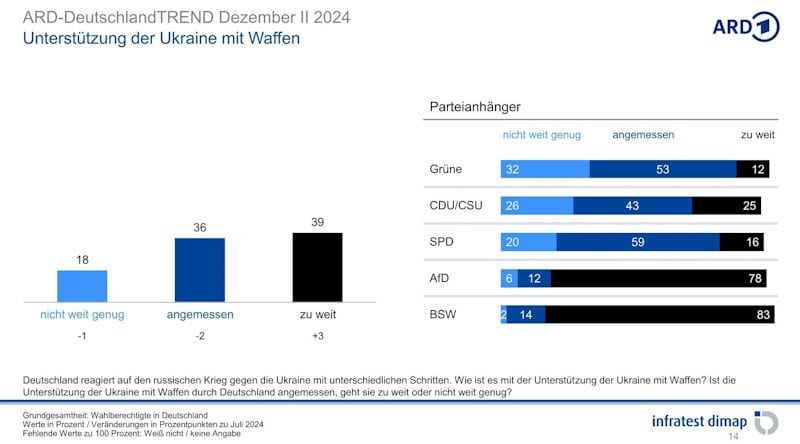Germany’s short campaign is struggling to gain traction, what with Christmas and New Year’s Eve. But even with the festive distractions, one issue is clearly emerging as a major point of contention: Germany’s stance on the Russia-Ukraine conflict.

Unsurprisingly, public opinion on this matter aligns neatly with the persistent east-west divide that continues to characterise German politics. The latest Deutschlandtrend data show that while 35% of western Germans think we’re providing too much military aid to Ukraine, this figure jumps to 56% among eastern Germans (CF the black bars). This stark difference underscores the enduring political and cultural divisions within Germany, even decades after the fall of the Berlin Wall.
But the real story here isn’t just about geography – it’s about party politics. The partisan divide on this issue is even more pronounced than the regional split. On one end of the spectrum, there are the Greens, whose supporters are the most hawkish when it comes to supporting Ukraine (only 12% think we are giving too much aid, while 32% say we are not doing enough). They’re broadly aligned with voters of the SPD and the Christian Democrats, forming a loose coalition in favour of continued military aid.

On the other end, there are the supporters of the AfD and the BSW (Bündnis Sahra Wagenknecht). Both parties are decisively pro-Russian. And their voters really dislike the idea of supporting Ukraine.
But whether this issue will move the needle during the campaign is a different question. Both the currently rather high level of AfD support and the very existence of the BSW (a breakaway from the Left) are closely linked to the ongoing war. The parties’ and their partisans’ positions appear fairly entrenched. So it may well be the case that the issue is divisive for the election, yet the decisions have already been made.
Then again, Trump’s inauguration and the decisions he will make may well change the calculus – not just for Russia and Ukraine, but also for Germany and German voters.




Likes
Reposts